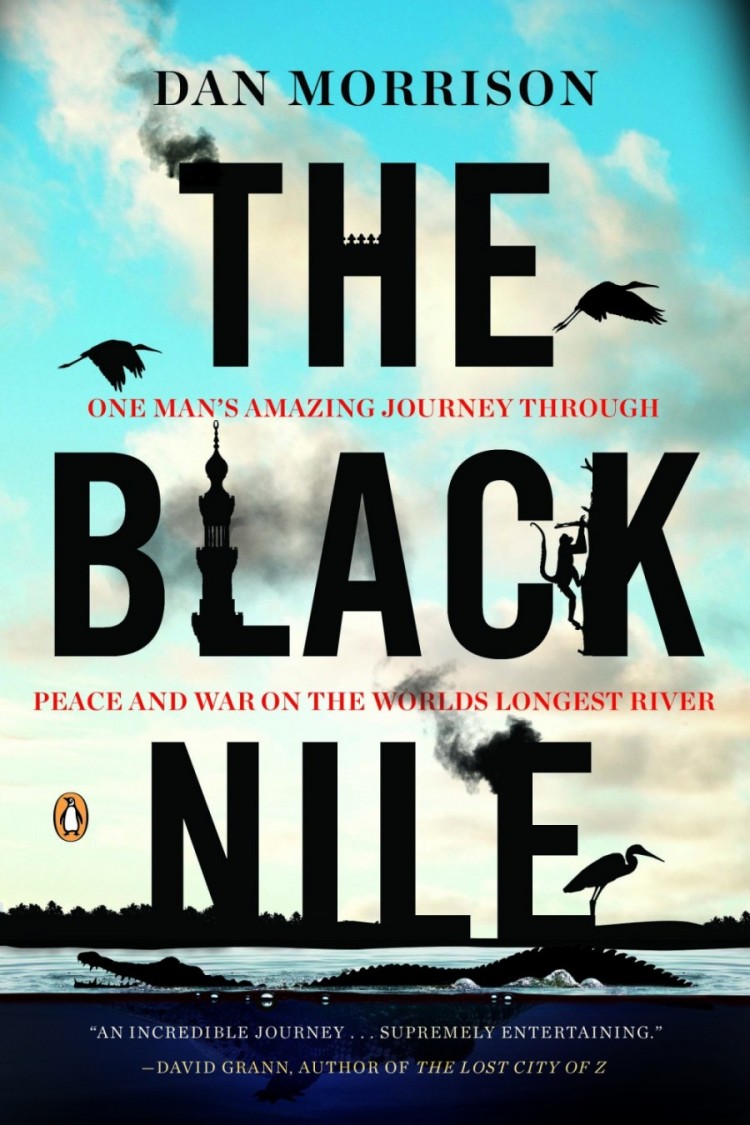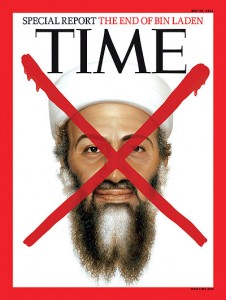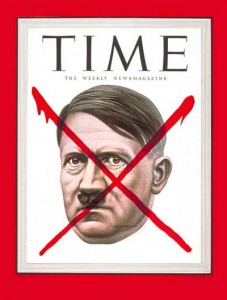“If you don’t blow your own horn, there is no music,” Jimmy Breslin, that great id of New York newspapering, said more than once (and I’ve quoted him more than once). And so: Here’s The Black Nile, profiled in The Egypt Independent. The book, “with its attention to fact and suspension of easy judgment, is the farthest kind of work from #Kony2012,” says James Purtill. And here’s The Black Nile on the summer reading list of India’s Sunday Standard magazine. And, lastly, an unexpected plug from indie publicist LuxLutus. More soon.
Praise for The Black Nile
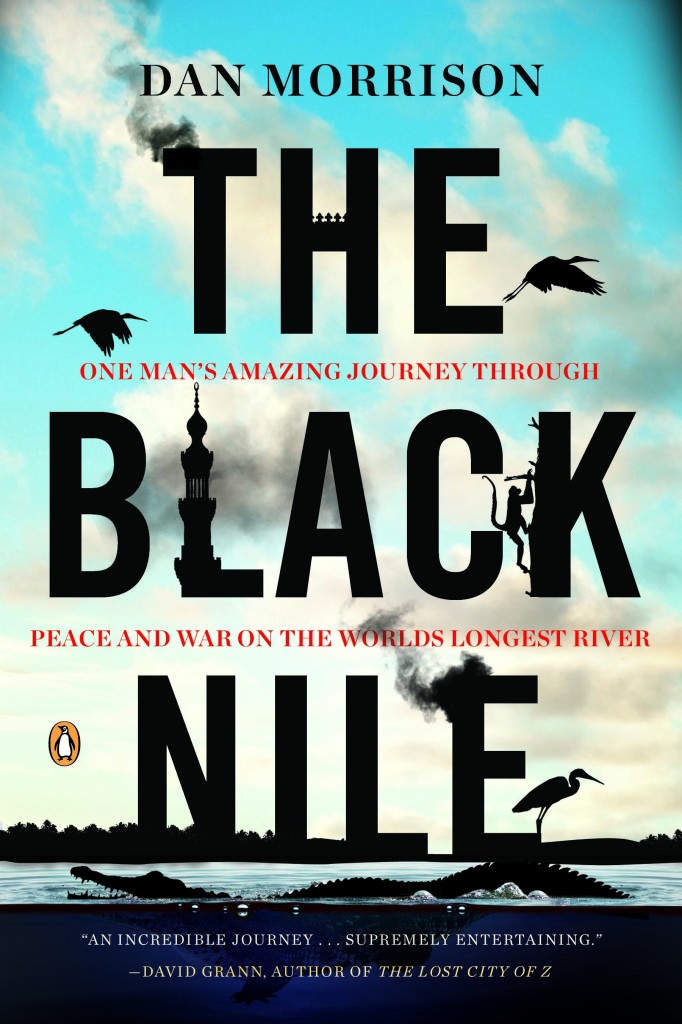 From a “nomad who pursues every form of transportation imaginable to follow Africa’s longest river,” The Black Nile is “an evocative piece of reporting…a portrait of a fractured country just one spark away from a renewal of hostilities.” –Joshua Hammer, The New York Times Sunday Book Review
From a “nomad who pursues every form of transportation imaginable to follow Africa’s longest river,” The Black Nile is “an evocative piece of reporting…a portrait of a fractured country just one spark away from a renewal of hostilities.” –Joshua Hammer, The New York Times Sunday Book Review
Beautifully written. A masterful narrative of investigative reportage, travel writing, and contemporary history. . . . The Black Nile is all at once thrilling, sad, and—most of all—thoughtful. —The Daily Beast
Dan Morrison takes the reader on an incredible journey in The Black Nile. Weaving together intense travel writing and history, he has produced a supremely entertaining work, and also an important one. —David Grann, author of The Lost City of Z
Part On the Road, part Fear and Loathing in Africa, Dan Morrison takes us with him on his journey down the Nile–teaching us, by example, to be explorers of both the world and ourselves. —Kevin Sites, author of In the Hot Zone: One Man, One Year, Twenty Wars
An Interview with the Huffington Post
Travel, literature, and a little too much gunfire: Andrew Burmon talks with Dan Morrison about The Black Nile.
Leaving South Sudan with a Broken Gear Stick
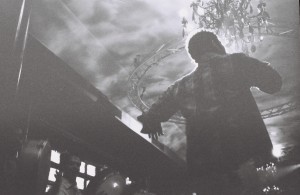 * Cruising on jellied asphalt through the northern badlands of South Sudan when the unthinkable happens. An excerpt from The Black Nile on NationalGeographic.com
* Cruising on jellied asphalt through the northern badlands of South Sudan when the unthinkable happens. An excerpt from The Black Nile on NationalGeographic.com
* In Cairo, riots, repression, and a room full of dancing men. A diverting excerpt from The Black Nile, courtesy our friends at Swink Magazine in Los Angeles.
Revolution on the Nile
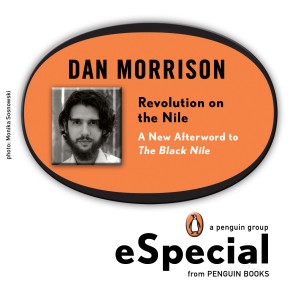 In just eight days a new country, the Republic of South Sudan, will be born. It’s a huge step – but not the last step – in a 55-years-and-counting struggle for dignity and self-determination.
In just eight days a new country, the Republic of South Sudan, will be born. It’s a huge step – but not the last step – in a 55-years-and-counting struggle for dignity and self-determination.
The south’s departure from Sudan has been as troubled as its union, with the recent fighting in Southern Kordofan and Abyei, as well as continuing insurgencies by southern renegades including George Athor and Peter Gadet. The Lord’s Resistance Army, too, remains active in the western part of the new country.
These are only the most obvious and immediate challenges faced by the southern people. Southern Sudan’s leaders, its people, and its nascent institutions will have to struggle mightily to prevent their new state from resembling the old Sudan in its approach to human rights, inclusivity, opportunity, and rule of law.
None of this should take away from the gigantic achievement that southern Independence represents. Millions died and millions more were made homeless, and endured famine, captivity and fear to get to July 9: A delicious and hugely challenging Year One. Democracy entails the right of the people and their representatives to make mistakes, to take responsibility for those errors (to “own” them, in the current parlance) and make corrections. It won’t be at all easy. But it’s a great, historic moment.
On July 5, Penguin Books will publish Revolution on the Nile, my new Afterword to The Black Nile, as an “e-special” available on the Kindle, the Nook, and Apple’s iPad, iPhone, and iTouch, as well as other e-readers. Revolution on the Nile updates The Black Nile with an account of south Sudan’s January freedom referendum, squashed attempts at public protest in northern Sudan, and the electrifying revolt against Hosni Mubarak in Egypt.
Who’s a Hitler? A tale of five covers.
Time magazine made an obvious and unimaginative choice for its cover last week, showing an image of Osama bin Laden with a dripping red X across his face.
The Osama cover, by illustrator Tim O’Brien, is an homage to the magazine’ May 7, 1945, Page One commemorating the death of Adolph Hitler, but with a small but notable difference. The Hitler cover was entirely uncaptioned – the image said it all. For today’s audience (current print circulation 3.3 million), Time’s editors felt the need to note that inside readers would find a special report on “The End of Bin Laden.”
It’s certainly appropriate for Time to adapt the Hitler image for bin Laden’s death. Despite his comparatively miniscule dark accomplishments, the Al Qaeda leader loomed as large in the contemporary American imagination as Hitler did in the 1940s, when millions of American men were under arms, hundreds of thousands were dying on the battlefield, and the entire nation lived on a war footing.
But this isn’t the first occasion that Time has used the Hitler-is-Dead format. Time’s June 19, 2006, cover marking the death of Abu Mousab al Zarqawi, the hyper-violent leader of Al Qaeda in Iraq, following his liquidation by a pair of 500-pound American bombs. For that week’s edition, editors followed more closely their 1945 model. Zarqawi was depicted without caption under the blood red X.
The problem was that almost no one in the United States or around the world (the cover ran on all of Time’s international editions, with the exception of Asia) knew – or cared — what Abu Mousab al Zarqawi looked like. Zarqawi wasn’t a household name, and, despite his record of cruelty, his shadow didn’t extend beyond Iraq and Jordan. The image was generic: Generic Arab. Continue reading “Who’s a Hitler? A tale of five covers.”
Gratified in Gotham
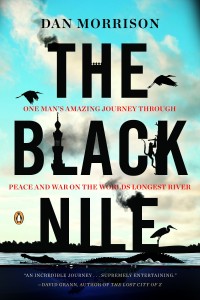 I’m very pleased that The Black Nile has been named one of the Village Voice’s Best Books of 2010, joining the likes of Patti Smith, Milan Kundera, Jennifer Egan, and The Anthology of Rap. This comes on the heels of a swell December 5 write-up by Joshua Hammer in The New York Times Sunday Book Review.
I’m very pleased that The Black Nile has been named one of the Village Voice’s Best Books of 2010, joining the likes of Patti Smith, Milan Kundera, Jennifer Egan, and The Anthology of Rap. This comes on the heels of a swell December 5 write-up by Joshua Hammer in The New York Times Sunday Book Review.
Visa officials permitting, I’ll be back in Sudan next month, covering the January 9 referendum for an obscure online journal.
Until then, Happy Holidays. (That’s The Black Nile‘s paperback cover image, by the way.)
A Glowing Review in The Washington Post
 Travel writer Tahir Shah has published a glowing review of The Black Nile in the Washington Post. It’s especially gratifying coming from an author who knows first-hand the joys, burrs, and dangers of off-the-grid travel and reporting. Here’s an excerpt:
Travel writer Tahir Shah has published a glowing review of The Black Nile in the Washington Post. It’s especially gratifying coming from an author who knows first-hand the joys, burrs, and dangers of off-the-grid travel and reporting. Here’s an excerpt:
Morrison’s experience as a journalist shines through, as does his use of humor, which frames subjects of utter horror. These include intertribal conflict, pestilence, and the dams and deforestation that have destroyed swaths of East Africa’s ancient habitat. In the southern Sudanese town of Juba, Schon cooked up his last plates of oily spaghetti and came clean about not wanting to go on, especially since “on” was into the “malarial tinderbox” of the Sudd swampland, where “the war wasn’t quite finished in Upper Nile state — antagonistic militias stewed in camps while their leaders grappled for political power.” After his childhood buddy leaves, Morrison continues alone, and, now that the author can turn his full attention to the landscape around him, the travelogue steps up a notch. What’s impressive is how well he describes without judging. The Africa he depicts is a place where tribal rivalry complements religious and political friction; where illness, disease and utter poverty shape the lives of the majority, who lack the safety nets that so often catch Westerners when we fall.
As the journey progresses, it becomes much less of a whimsical jaunt and much more of a hard-edged report. This is Morrison at his best, lean and hungry in wild wastelands of Africa’s Sahel. His description of the Sudanese capital is memorable : “A dense static of orange grit came screaming from the desert; it filled the sky and trapped Khartoum’s eight million souls in a suffocating and radiant silica heat.”
Click here to buy your copy of The Black Nile.
And check out Tahir Shah’s most recent new book, In Arabian Nights: A Caravan of Moroccan Dreams.
The LA Times calls The Black Nile “a memorable romp.”
 “Morrison is an agreeable raconteur, and he’s skilled at conjuring the menacing disorder of a continent dump-trucked in the Class VI whitewater of post-colonial commerce . . . The cumulative near-misses, the chronic money shortage and the moving stories have a huge impact by the time Morrison reaches Rosetta in Egypt . . . A memorable romp.”
“Morrison is an agreeable raconteur, and he’s skilled at conjuring the menacing disorder of a continent dump-trucked in the Class VI whitewater of post-colonial commerce . . . The cumulative near-misses, the chronic money shortage and the moving stories have a huge impact by the time Morrison reaches Rosetta in Egypt . . . A memorable romp.”
More Reviews!
 * “A masterful narrative of investigative reportage, travel writing, and contemporary history.” – The Daily Beast
* “A masterful narrative of investigative reportage, travel writing, and contemporary history.” – The Daily Beast
 * The Black Nile “combines wit with deep reporting…Getting in and out of dangerous locations is clearly Morrison’s forte.” – BusinessWeek
* The Black Nile “combines wit with deep reporting…Getting in and out of dangerous locations is clearly Morrison’s forte.” – BusinessWeek
![]() * “Captures the sun-baked, hallucinatory aura that slow boat travel can induce…Excels in bringing the place, politics and history of this fragile region alive.” – The Boston Globe
* “Captures the sun-baked, hallucinatory aura that slow boat travel can induce…Excels in bringing the place, politics and history of this fragile region alive.” – The Boston Globe
 * The Black Nile “avoids the evangelical zeal and naïve prescriptions other Africa books fall victim to . . . Morrison teeters dangerously close to gunfights, disease, and run-ins with the authorities while relying on former rebels, proto-entrepreneurs, and crooked bureaucrats to get him through.” – Outside
* The Black Nile “avoids the evangelical zeal and naïve prescriptions other Africa books fall victim to . . . Morrison teeters dangerously close to gunfights, disease, and run-ins with the authorities while relying on former rebels, proto-entrepreneurs, and crooked bureaucrats to get him through.” – Outside
 * “Adventure is only half the story in this marvelous book, and maybe the lesser half…A beautifully-written tale of an American on a journey to find out who else is out there, what they’re thinking, why they do what they do, and hey, check out that sunset with the cranes flying low across the horizon.” – Tom Robbins, the Village Voice
* “Adventure is only half the story in this marvelous book, and maybe the lesser half…A beautifully-written tale of an American on a journey to find out who else is out there, what they’re thinking, why they do what they do, and hey, check out that sunset with the cranes flying low across the horizon.” – Tom Robbins, the Village Voice
 * “There’s enough grist in this excellent travelogue to craft a dozen killer Microkhan posts.” – Brendan Koerner, Microkhan.com
* “There’s enough grist in this excellent travelogue to craft a dozen killer Microkhan posts.” – Brendan Koerner, Microkhan.com
 * “If you’re weary of cliched newsbites, misery memoirs and exoticised adventurism, and want more insight than disaster reporting or parched analyses can offer, this is a refreshing relief.” – Peter Verney, Sudan Update
* “If you’re weary of cliched newsbites, misery memoirs and exoticised adventurism, and want more insight than disaster reporting or parched analyses can offer, this is a refreshing relief.” – Peter Verney, Sudan Update

